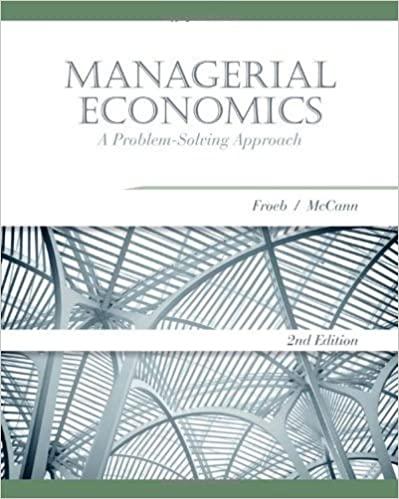Question
-- The Power of Compounding Activity -- Answer the following questions which demonstrate the time value of money by using the EconEd Link Compound Interest
-- The Power of Compounding Activity --
- Answer the following questions which demonstrate the time value of money by using the EconEd Link Compound Interest Calculator (http://www.moneychimp.com/calculator/compound_interest_calculator.htm)
- Change the amount of times it is compounded to 12 (compounded monthly).
- In the "Annual Growth" box, remember to multiply the amount that is being invested each month by 12.
- As you calculate each answer, put it on the answer list below the questions.
- After you calculate each answer and record on the worksheet by hand, you will be asked to enter the answers online so that they send to the teacher.Be sure to keep your worksheet handy so you can enter the answers quickly.
A. Julia has just turned 25.She has no debt besides her house payment.She decides to participate in her company's 401k plan.She contributes $200 monthly.She decides to invest in government bonds which pay 5%.
1) If she maintains this plan, how much will she have when she is 65?
B. Esther works right next to Julia.Esther is also 25 and decides to invest $400 in the same government bond fund.She also earns 5% on her investment.
2) If she maintains this plan, how much will Esther have when she is 65?
3) Esther will invest twice as much money as Julia does; how much more than Julia will Esther earn?
4) Is this close to twice as much?
C. Interestingly, Jennifer who works at the same company has also just turned 25.Jennifer learned in her awesome MDLP economics course that, over the last hundred years, long-term investments in the stock market have averaged a return of 10% - 12%.Jennifer decides to invest $200 a month in the stock market through the 401k plan.Her investments earn 10% interest.
5) If she maintains this plan, how much will she have when she is 65?
6) Jennifer will invest the same amount as Julia but her money will be earning twice as much interest; how much more will Jennifer earn than Julia?
7) Will she earn at least twice as much?
D. What if Jennifer decides to invest $400 a month instead of $200 at 10% interest?If she continues this plan until she retires at age 65 she will end up investing $96,000 more.That's a lot of money!!Is it worth it?
8) How much will Jennifer end up with if she invests the $400 a month?
9) What is the difference between the total for a $200 monthly investment and a $400 monthly investment?
10) Is it more than the $96,000 extra that she will contribute?
E. Terry waits until he is age 30 to begin contributing to the retirement plan.He contributes $400 a month and earns 10% interest.
11) If he maintains this plan, how much will he have when he is 65?
12) What would the difference be if he had started contributing at age 25?
D. Reynaldo is also 30.He wishes he had started investing when he was 25, but he knows he can never get those years back, so he chooses to contribute as much as he can afford at his current age.He is earning more now than when he was 25 and he has no debt except for a small house payment.He decides to invest $800 monthly in the stock market fund.He earns 10% interest on his investment.
13) If he maintains this plan, how much will he have when he is 65?
14) What would be the difference if he waited until age 35?
15) What would Reynaldo's total earnings be (at age 65) if he started at age 30, invested $800 a month, and earned 5% interest?
Answers:
1)
2)
3)
4)
5)
6)
7)
8)
9)
10)
11)
12)
13)
14)
15)
Step by Step Solution
There are 3 Steps involved in it
Step: 1

Get Instant Access to Expert-Tailored Solutions
See step-by-step solutions with expert insights and AI powered tools for academic success
Step: 2

Step: 3

Ace Your Homework with AI
Get the answers you need in no time with our AI-driven, step-by-step assistance
Get Started


